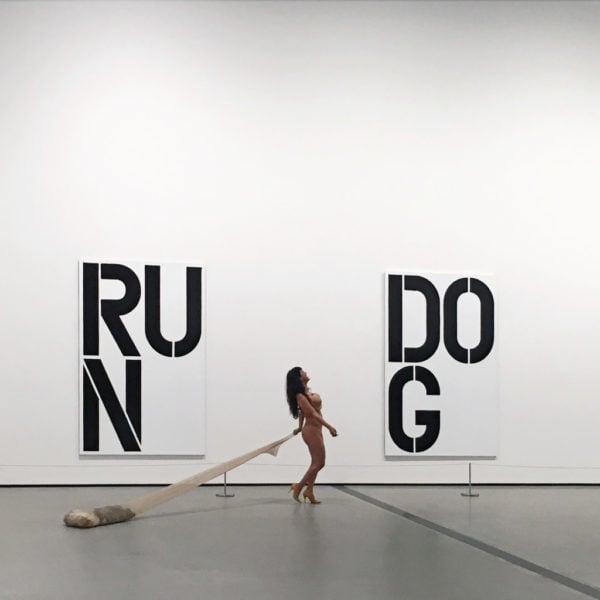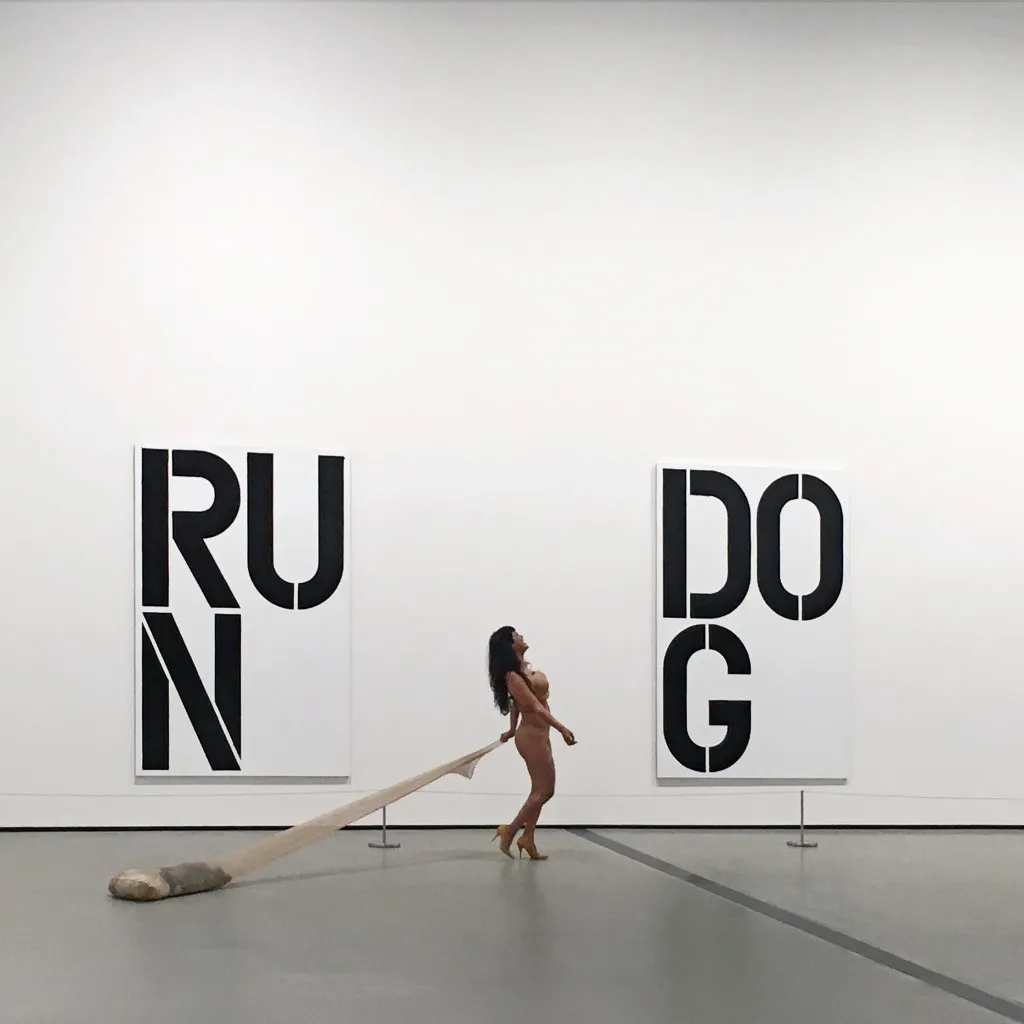
On Friday, October 20, Xandra Ibarra, an Oakland-based performance artist, performed her acclaimed “Nude Laughing” work at Stanford’s Anderson Collection. Ibarra’s performance was a part of the Vital Signs Guest Artist Series curated by performance artist Cassils for the Stanford TAPS department. It sent chills up my spine and goosebumps all over my arms when I first heard the cackling laugh reverberating against the walls. Xandra Ibarra’s laugh, an integral part of her performance, is not likely to leave my memory any time soon.
Ibarra’s work is known to hyperbolize the boundaries of race and sexuality through a variety of mediums, particularly through her own body. “Nude Laughing” is one such performance. The performance started in the lobby of the Anderson Collection with audience members milling about. Suddenly, a woman wearing only a pair of stilettos and fake breasts, dragging a nylon, skin-colored cocoon filled with items not yet discernible, approaches from down the hallway. Everyone watches her silently as she makes her way towards us and then moves up the stairs. The audience moves to follow several paces behind.
Ibarra silently leads the audience around the Anderson Collection for about five minutes before she starts to giggle. The giggle is strange, and it prompts a lot of smiles and giggles from the audience following her in return, probably due to the sheer awkwardness of the experience. However, Ibarra’s giggles soon turn almost maniacal, she’s not just laughing. She’s almost crying and gasping for breath. Ibarra starts to stumble and sway as she walks, looking a lot like a drunk person. It’s haunting, to say the least.
After leading the audience around the Anderson Collection for about twenty-five minutes, Ibarra stops laughing and makes her way to the front of the stairs. She falls to the ground and starts to try to fit into her nylon skin cocoon. As she tries to fit in, the contents of her cocoon become more visible: blonde wigs, ballet shoes, fur shawls, pearls, and tights.
Ibarra struggles to fit into the cocoon by twisting her body this way and that, silently crying. When she finally does, she sits for a while, then struggles to get back out. She’s not content with being in this bag of things. Ibarra’s things start to fall out of the cocoon with her. When Ibarra frees herself from the cocoon, she lies there and takes off her fake breasts. Ibarra then gets up and walks down the stairs from whence she came, hair disheveled, face distraught, dragging her fake breasts with her.
It was surreal. The audience stood in shock as Ibarra walked away. And hopefully, they were thinking of the questions that Ibarra meant to provoke. “Nude Laughing” is meant to be Ibarra’s analysis of identity in race and gender. She bared her beautiful brown skin, but dragged with her a cocoon of items that represented white womanhood. Ibarra tried to fit herself into this collection of white womanhood, but ultimately realizes that she doesn’t quite fit. Or, at least, that’s what I thought.
Ibarra’s performance was riveting. Despite the awkward nature of following a cackling woman around expensive and exquisite pieces of modern art, the climax of Ibarra’s performance and her ability to channel all these emotions in her deranged-sounding laugh struck a chord in the audience. It makes you wonder about your own problems with race and gender, and how is it that each of us tries to fit or break free from our mold.
Normally, I’m not a fan of less-than-conventional performance art, but I do think Ibarra’s “Nude Laughing” is worthy of the awards and accolades that it has won. She is truly an exceptional artist, and I urge others not only to keep their eyes open for chances to see her, but also to check out the other events that the Vital Signs Guest Artist Series will host. With such an amazing performance already, I expect the series that Cassils has curated for Stanford will have many more fantastic performances and talks to come.
Contact Mell Chhoy at mchhoy ‘at’ stanford.edu.
